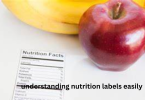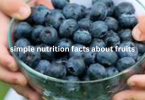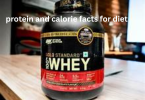Let’s be honest—keeping up with daily nutrition can feel like studying for a science exam you never signed up for. You hear about vitamins, minerals, supplements, deficiencies, “superfoods,” and wonder… Do I even get enough of what I need every day?
If you’ve ever had those thoughts, you’re in the right place. In this guide, I’m going to walk you through everything you need to know about daily vitamins and minerals, in a simple, friendly way—like we’re having a conversation. You’ll learn:
- what each vitamin and mineral does
- what foods contain them
- signs you might need more
- benefits of getting daily micronutrients
- possible drawbacks of supplements or deficiencies
Let’s dive into this full, helpful daily vitamins and minerals information guide.
Why Daily Vitamins and Minerals Matter So Much

Your body needs fuel—carbs, protein, fats—to keep moving.
But vitamins and minerals? Those are like the spark plugs, tools, and tiny technicians keeping everything running smoothly behind the scenes.
They help with:
- energy production
- immunity
- healthy skin and hair
- brain function
- metabolism
- bone strength
- mood regulation
Even if you eat meals that “fill you up,” you might still lack nutrients that “lift you up.”
Detailed Daily Vitamins and Minerals Information: What Your Body Needs
Below is a more detailed breakdown of each essential vitamin and mineral, including benefits, drawbacks, and food sources.
Essential Vitamins
1. Vitamin A
What it does
- Supports strong vision
- Helps your immune system fight infections
- Keeps skin healthy
- Aids cell growth
Sources
Carrots, sweet potatoes, pumpkin, liver, eggs, spinach.
Benefits
- Better night vision
- Healthier skin and nails
- Stronger immunity
Drawbacks
- Too much from supplements can cause toxicity (headaches, dizziness)
- Pregnant women must avoid excessive vitamin A supplementation
2. Vitamin B Complex (B1–B12)
Includes: B1, B2, B3, B5, B6, B7, B9, B12
What it does
- Boosts energy
- Supports brain function
- Helps metabolism
- Improves mood
- Supports nerve health
Sources
Whole grains, meat, eggs, dairy, nuts, seeds, bananas, leafy greens
Benefits
- Reduces fatigue
- Supports concentration and memory
- Healthier skin and hair
Drawbacks
- B12 deficiency is common in vegans
- Over-supplementation of B6 can cause nerve issues (rare)
3. Vitamin C
What it does
- Strengthens immunity
- Keeps skin firm by supporting collagen
- Boosts iron absorption
- Helps wounds heal faster
Sources
Oranges, strawberries, kiwi, bell peppers, tomatoes, broccoli
Benefits
- Fewer colds
- Faster healing
- Better iron absorption
Drawbacks
- Too much can cause stomach upset
- Very high doses may cause kidney stones in some people
4. Vitamin D
What it does
- Builds strong bones
- Improves mood
- Strengthens immune system
Sources
Sun exposure, fortified milk, mushrooms, salmon, egg yolks
Benefits
- Better mental health
- Stronger bones
- Reduced risk of infections
Drawbacks
- Many people are deficient due to indoor lifestyles
- High supplement doses can harm kidneys
5. Vitamin E
What it does
- Powerful antioxidant
- Helps skin repair
- Protects cells
Sources
Nuts, seeds, vegetable oils, spinach, avocados
Benefits
- Healthier skin
- Anti-aging antioxidant effects
Drawbacks
- Too much can cause bleeding risks
- Supplements are not recommended for everyone
6. Vitamin K
What it does
- Helps blood clot
- Supports strong bones
Sources
Broccoli, kale, spinach, brussels sprouts
Benefits
- Stronger bones as you age
- Prevents bleeding issues
Drawbacks
- Can interfere with blood-thinning medications
Essential Minerals
1. Calcium
What it does
- Strengthens bones and teeth
- Supports muscle movement
- Helps with nerve signals
Sources
Milk, cheese, yogurt, tofu, leafy greens, fortified drinks
Benefits
- Lower risk of osteoporosis
- Better muscle function
Drawbacks
- Too much supplementation may cause kidney stones
- Coffee and soda can reduce calcium absorption
2. Iron
What it does
- Carries oxygen through your blood
- Supports energy levels
Sources
Red meat, spinach, lentils, beans, fortified cereals
Benefits
- Increases energy
- Prevents anemia
Drawbacks
- Too much can be toxic
- Deficiency is common—especially in women
3. Magnesium
What it does
- Helps muscles relax
- Supports sleep
- Aids nerve and heart function
Sources
Nuts, seeds, whole grains, avocados, dark chocolate
Benefits
- Better sleep
- Reduced cramps
- Lower stress levels
Drawbacks
- Over-supplementation may cause diarrhea
- Many people are mildly deficient
4. Potassium
What it does
- Regulates fluids
- Supports heart health
- Helps muscles work
Sources
Bananas, potatoes, beans, oranges, yogurt
Benefits
- Healthier heart
- Lower blood pressure
Drawbacks
- Too much (rare) can affect heartbeat
- Low potassium causes weakness or cramps
5. Zinc
What it does
- Strengthens immunity
- Helps with wound healing
- Supports hormones and reproduction
Sources
Meat, seeds, nuts, chickpeas, whole grains
Benefits
- Fewer colds
- Faster healing
Drawbacks
- Too much reduces copper absorption
- High doses may cause nausea
6. Selenium
What it does
- Powerful antioxidant
- Supports thyroid function
- Helps immunity
Sources
Brazil nuts, fish, eggs, poultry
Benefits
- Better thyroid health
- Stronger immune system
Drawbacks
- Too much can cause hair loss or stomach problems
- Only 1–2 Brazil nuts are enough daily
You amya also like to read these posts:
Low Calorie Recipes for Weight Loss: Eat Smart, Feel Great, and Stay Full
Nutritious Breakfast and Dinner Ideas: A Complete Guide to Eating Healthy Every Day
Healthy Food Recipes for Daily Diet
Best Healthy Recipes for Busy People: Simple, Delicious, and Nutritious Meals You Can Make Anytime
Benefits of Getting the Right Daily Vitamins and Minerals

When your body gets what it needs:
- Higher energy levels
- Better mood and mental clarity
- Stronger bones and muscles
- Healthier skin, hair, and nails
- Stronger immune system
- Better sleep
- Balanced hormones
- Healthy digestion
- Reduced risk of chronic diseases
Potential Drawbacks or Risks
Getting vitamins and minerals from food rarely causes issues. Problems usually happen when people take supplements incorrectly.
- Taking too many vitamins can be harmful (especially A, D, E, K)
- Supplements can interact with medications
- Mega-dosing doesn’t equal extra benefits
- Some supplements cause stomach upset
- Choosing low-quality supplements may lead to inaccurate dosing
Do You Need Supplements?
You might benefit from a supplement if:
- You don’t eat a varied diet
- You’re vegan or vegetarian (especially B12, iron, zinc)
- You work indoors (vitamin D)
- You’re anemic
- You’re pregnant
- You’re an older adult
- You have absorption issues
A simple blood test can help you know what you truly need.
Final Thoughts
Understanding daily vitamins and minerals information isn’t difficult once someone explains it clearly. Your body needs these nutrients every single day to function, feel energized, stay healthy, and age gracefully.
Small steps—like adding fruits, vegetables, nuts, or a good multivitamin—can make a big difference in your long-term health.
FAQs
1. What are daily vitamins and minerals?
Daily vitamins and minerals are essential nutrients your body needs every day to function properly. Vitamins are organic compounds (like A, C, D, E, and B-complex), while minerals are inorganic elements (like calcium, iron, magnesium, and zinc). They support immunity, energy, bone health, brain function, and overall well-being.
2. Why is it important to know daily vitamins and minerals information?
Knowing this information helps you understand what your body needs, prevents deficiencies, and ensures you maintain optimal health. It also guides you to make smart food choices or decide if you need supplements.
3. Can I get all vitamins and minerals from food alone?
In most cases, yes. A balanced diet with fruits, vegetables, whole grains, nuts, seeds, dairy, and protein sources provides most nutrients. However, some people may need supplements due to dietary restrictions, medical conditions, or lifestyle factors (like low sun exposure for vitamin D).
4. What happens if I don’t get enough vitamins and minerals?
Deficiencies can cause a wide range of problems, such as:
Fatigue and low energy
Weak immunity
Poor concentration or mood swings
Weak bones or teeth
Skin, hair, or nail issues
Muscle cramps or irregular heartbeat
5. Can I take too many vitamins or minerals?
Yes. Over-supplementing, especially with fat-soluble vitamins (A, D, E, K) or minerals like iron and selenium, can be harmful. It may lead to toxicity, digestive issues, or interfere with other nutrients. Always follow recommended dosages and consult a healthcare professional.





